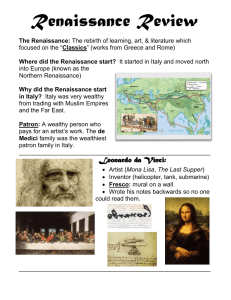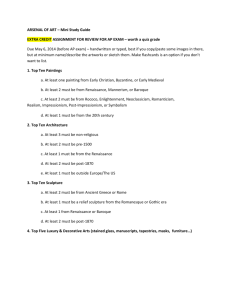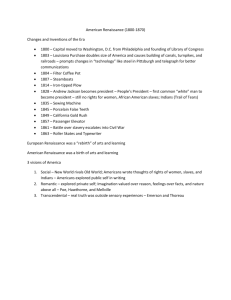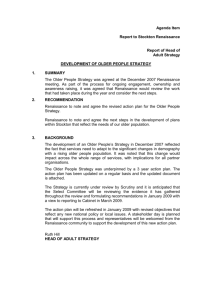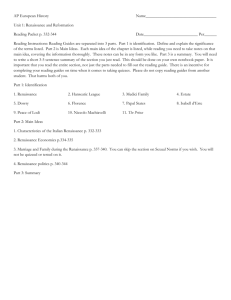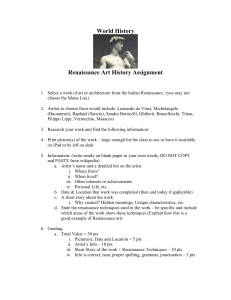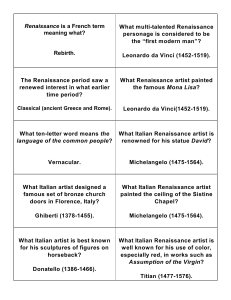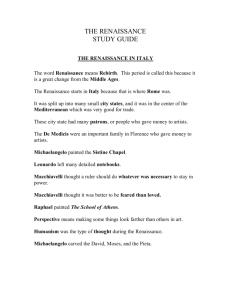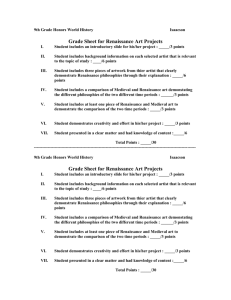Renniasance Vocab flash cards
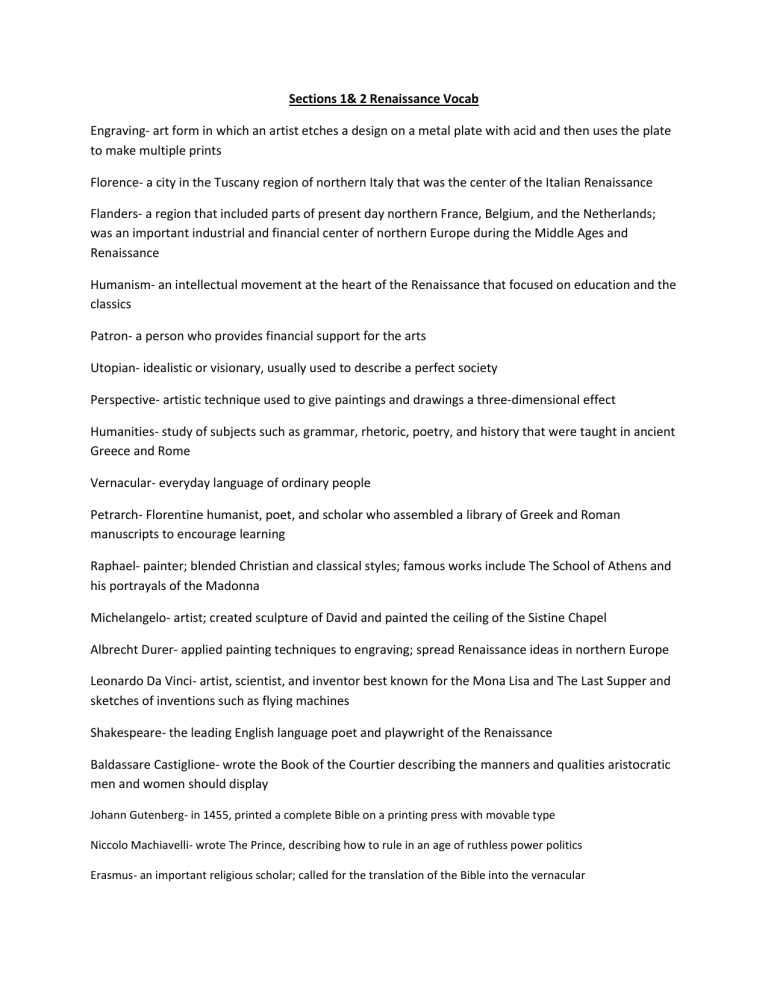
Sections 1& 2 Renaissance Vocab
Engraving- art form in which an artist etches a design on a metal plate with acid and then uses the plate to make multiple prints
Florence- a city in the Tuscany region of northern Italy that was the center of the Italian Renaissance
Flanders- a region that included parts of present day northern France, Belgium, and the Netherlands; was an important industrial and financial center of northern Europe during the Middle Ages and
Renaissance
Humanism- an intellectual movement at the heart of the Renaissance that focused on education and the classics
Patron- a person who provides financial support for the arts
Utopian- idealistic or visionary, usually used to describe a perfect society
Perspective- artistic technique used to give paintings and drawings a three-dimensional effect
Humanities- study of subjects such as grammar, rhetoric, poetry, and history that were taught in ancient
Greece and Rome
Vernacular- everyday language of ordinary people
Petrarch- Florentine humanist, poet, and scholar who assembled a library of Greek and Roman manuscripts to encourage learning
Raphael- painter; blended Christian and classical styles; famous works include The School of Athens and his portrayals of the Madonna
Michelangelo- artist; created sculpture of David and painted the ceiling of the Sistine Chapel
Albrecht Durer- applied painting techniques to engraving; spread Renaissance ideas in northern Europe
Leonardo Da Vinci- artist, scientist, and inventor best known for the Mona Lisa and The Last Supper and sketches of inventions such as flying machines
Shakespeare- the leading English language poet and playwright of the Renaissance
Baldassare Castiglione- wrote the Book of the Courtier describing the manners and qualities aristocratic men and women should display
Johann Gutenberg- in 1455, printed a complete Bible on a printing press with movable type
Niccolo Machiavelli- wrote The Prince, describing how to rule in an age of ruthless power politics
Erasmus- an important religious scholar; called for the translation of the Bible into the vernacular
Thomas More- wrote Utopia, which describes an ideal and peaceful society in which people live in peace, all are educated, and crime is eliminated


